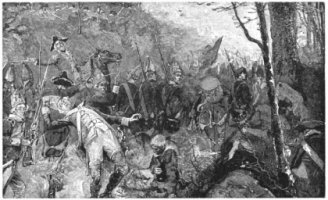Comprehension For SBI PO set – 11

Comprehension set – 11
he development of nationalism in the third world countries, as is well known, followed a very different trajectory from that in the advanced capitalist countries. In the latter it was a part of the process of the emergence of the bourgeois order in opposition of feudalism, while in the former it was a part of the anti-colonial struggle. The impact of colonialism, though it differed across countries, had on the whole been in the direction of transcending localism and unifying supra-local economic structures through the introduction of market relations. The struggle against colonialism, consequently, took the form of a national struggle in each instance in which people belonging to different tribes or linguistic communities participated. And the colonial power in each instance attempted to break this emerging national unity by splitting people. The modus operandi of this splitting was not just through political manipulation as happened for instance in Angola, South Africa and a host of other countries; an important part of this modus operandi was through the nurturing of a historiography that just denied the existence of any overarching national consciousness. The national struggle, the national movement were given a tribal or religious character, they were portrayed as being no more than the movement of the dominant tribe or the dominant religious group for the achievement of narrow sectional ends. But the important point in this colonialism, while, on the one hand, it objectively created the condition for the coming into being of a national consciousness at a supra-tribal, supra-local and supra-religious level, on the other hand it sought deliberately to subvert this very consciousness by using the same forces which it has objectively undermined.
1. Which of the following was the advantage of struggle against colonialism?
(a) Tribal groups held their separate identity throughout the struggle.
(b) Communities got divided on the basis of religion and language.
(c) Backwardness of tribals was eradicated.
(d) Awareness beyond linguistic and religious identity was generated.
(e) None of these
2. How did colonial power react to topple the anti-colonial structure?
(a) by splitting people on the basis of their financial positions
(b) by using tempting economic strategies
(c) by creating linguistic, tribal and religious divides
(d) by instigating tribals against anti-communal forces.
(e) None of these
3. The author has given the example of Angola, South Africa, etc in order to
(a) bring out the similarity of tactics used by the rulers of colonies to divide the natives
(b) emphasise how nationalism has become almost extinct and capitalism has borne roots
(c) support the argument that feudalism was opposed by people in underdeveloped countries also
(d) lay stress on the fact that tribals in those countries were divided on account of language
(e) None of these
4. What was the role of introduction of market relations in the process of economic integration?
(a) It had different impacts in all colonial exercises.
(b) It overthrew the capitalistic approach in the third world countries.
(c) It advocated importance of localism and restricted economic growth.
(d) It broke the shackles of localism and helped unify the economic structures.
(e) None of these
5. How did nationalism originate in the third world countries?
(a) as a struggle against feudalism
(b) as vehement opposition to colonialism
(c) to advocate capitalistic movement
(d) to strengthen localism
(e) None of these
6. What was the motive of colonial powers in writing a distorted history?
(a) to emphasise he existence of domination by one tribe over other weaker tribes
(b) to make people aware of and to integregate on the basis of their rich cultural heritage
(c) to make people aware of their glorious religion and widely used language
(d) to give an impression to general people that there was no national consciousness and to prevent them from being united
(e) None of these
7. Which of the following statements is definitely true in the context of the passage?
(A) Colonialism internally helped awakening nationalism among people of different tribes, religions, etc.
(B) Advanced capitalist countries had nurtured nationalism as an opposition to feudalism.
(C) The national struggle was not successful because the colonial powers succeeded in dividing the people.
(a) A and B only
(b) B and C only
(c) A only
(d) B only
(e) C only
8. From the content of the passage it appears that the author is
(a) a vehement critic of anti-feudalism
(b) a staunch follower of capitalistic pattern
(c) an impartial commentator of historical and political events
(d) a person holding colonialism in high esteem
(e) a historian with view coloured in favour of nationalism
9. The colonial powers tried to camouflage national movement and to show it as only
(a) a historical fact having ancient roots
(b) skirmish led by a dominating tribe or a religious group with selfish motive
(c) dominance of narrow sectional ends over national goals
(d) survival of the fittest in the struggle against colonialism
(e) None of these
Directions (Q. 10-12): Choose the word which is most SAME in meaning as the word printed in bold as used in the passage.
10. TRAJECTORY
(a) result
(b) tradition
(c) path
(d) consequence
(e) precedence
11. TRANSCENDING
(a) widening
(b) reviving
(c) encompassing
(d) surpassing
(e) piloting
12. EMERGENCE
(a) renaissance
(b) onslaught
(c) imposition
(d) development
(e) rise
Directions (Q. 13-15): Choose the word which is most OPPOSITE in meaning of the word printed in bold as used in the passage.
13. SPLITTING
(a) severing
(b) uniting
(c) adding
(d) collecting
(e) assembling
14. NURTURING
(a) weakening
(b) cultivating
(c) demolishing
(d) fostering
(e) poisoning
15. SUBVERT
(a) conquer
(b) escalate
(c) create
(d) emanate
(e) strengthen
Answer key:
1. (d) 2. (c) 3. (a) 4. (d) 5. (b) 6. (d) 7. (a) 8. (c) 9. (b) 10. (c) 11. (d) 12. (e) 13. (b) 14. (c) 15. (e)




